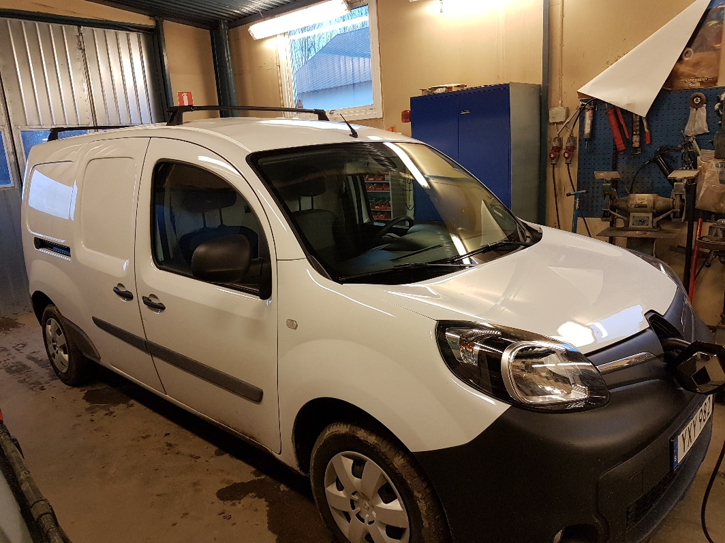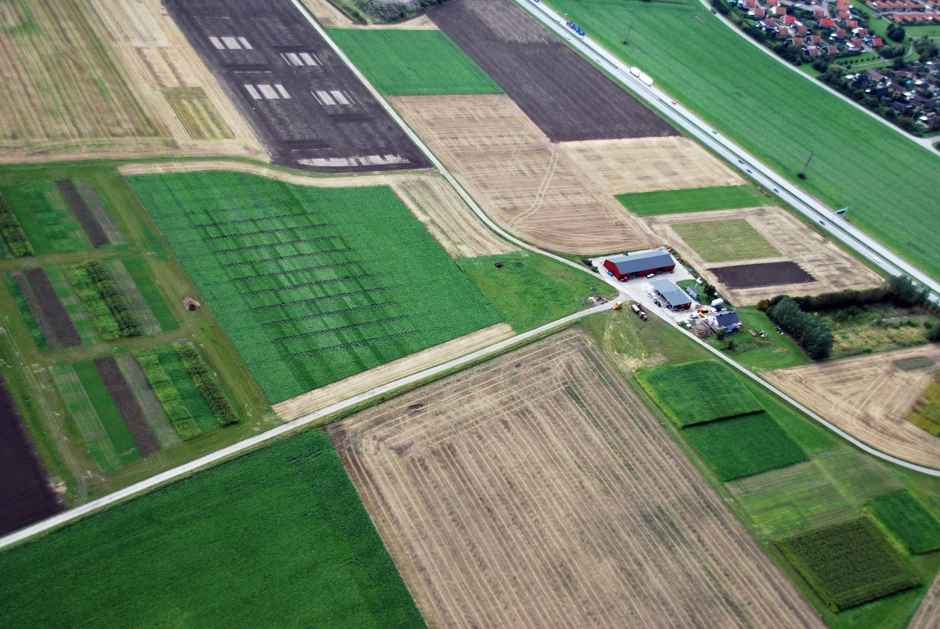Spring came early this year to Lönnstorp Research Station. The weather this "winter" has been characterized by rain, high temperatures and strong winds. If it continues to be warm, spring operations will start in a few weeks.
Electric van and high speed internet at Lönnstorp Research Station
Our SITES Lönnstorp Research Station recently purchased an electric van that will replace an old gasoline van for transports between the research station and Alnarp Campus, as well as between the research station and the experimental fields. The van was funded by the SLU climate fund and the Department of Biosystems and Technology. We estimate that this investment will reduce our carbon dioxide emissions by approximately 2.5 tons per year!

Figure 1: The new electric van from Lönnstorp Research Station will help to reduce the carbon footprint from the station significantly.
Already in December, high speed internet was installed at SITES Lönnstorp. This upgrade will allow more people to work at Lönnstorp, which would facilitate communication between researchers, entrepreneurs and technicians. In addition, high speed internet makes it possible for us to use new equipment, which hopefully will attract more projects to the station.
Production of organic leafy greens as a winter crop in poly-tunnels – a new exciting project at Lönnstorp Research Station
One of the principles of organic production is that the plants have to be in direct contact with the soil. The Nordic countries have had an exemption from this principle due to tougher winter climates, but with new EU-directives concerning organic production (2018/848) this will no longer be allowed. One of the largest issues of growing directly in soil is proliferation of soil borne diseases. Many greenhouse and poly-tunnel growers specialize in a few types of crops; a grower specialized in, e.g. tomatoes produces only tomatoes year after year – a practice made possible only by being able to change the growing substrate in between cultures. In the future, organic greenhouse and poly-tunnel production will have to adapt to the new directives. Therefore, long term crop rotations or short term green manure crops combined with a multitude of plant types grown throughout the year have to be used in order to maintain a fertile and healthy soil. For a more cost-effective use of the greenhouse and poly-tunnel area, and at the same time keeping up a diverse crop rotation, a project with organic vegetable production in poly-tunnels will start at SITES Lönnstorp Research Station in April 2020. The project is supported by the Ekhaga foundation, and its main focus is to study the possibility of growing leafy green vegetables during the winter months in poly tunnels (without heating) when production would normally be at a standstill.
If you want more info about the project, please contact Anna Karin Rosberg (anna.karin.rosberg@slu.se).

Figure 2: Lönnstorp Research Station with its experimental fields. Soon, the new ‘organic leafy greens as winter crops’ project will be part of the facilities. © Pekka Kurpa